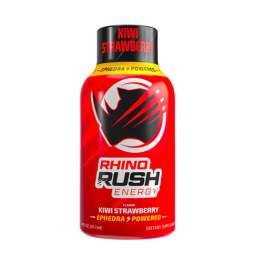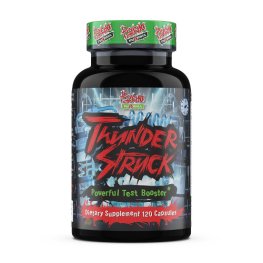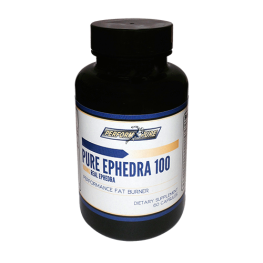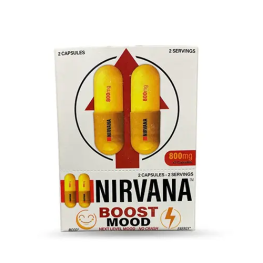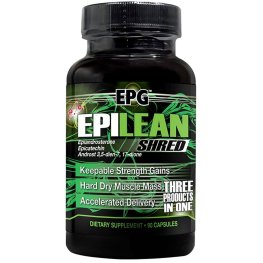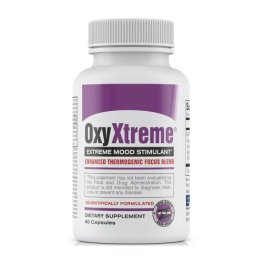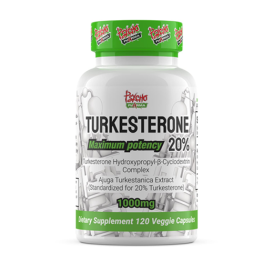Close
- Home
-
Deals
- Black Friday Deals
- Top Ten Energy and Focus
- Top Ten Ephedra
- Top Ten Pre-Workout
- Top Ten Prohormones
- Top Ten Sexual Performance
- Top Ten Strongest Pre Workouts
-
Shop By
- Shop by Goal
-
Shop by Ingredient
- 1-Androsterone
- 19-nor
- 2-Aminoisoheptane Hcl
- 3beta-hydroxy-5-androsten-17-one
- 4-androsten-3β-ol-17-one
- 4-Androstenolone
- 4-DHEA
- 5-HTP
- 5-Methoxytryptamine HCL
- 5a-Hydroxy Laxogenin
- 6 Paradol
- 6'7'-Dihydroxybergamottin
- 7 Keto DHEA
- 7-Keto
- Acacia Rigidula
- Achyranthes Aspera
- Adenosine Triphosphate (ATP)
- African Mango
- Agmatine Sulfate
- Alpha GPC
- Alpha Lipoic Acid
- Amp Citrate
- Androst 3,5-dien-7, 17 dione
- Apple Cider Vinegar
- Ashwagandha
- Atractylodes
- Bacopa Monnieri Extract
- Banaba Leaf
- Beet Powder
- Berberine
- Beta Alanine
- Beta Sitosterol
- Beta-Hydroxybutyrate (BHB)
- BioPerine
- Biotin
- Bitter Melon
- Black Elderberry
- Black Pepper Extract
- BMPEA
- Brassaiopsis Glomerulata
- Bulbine Natalensis
- Caffeine
- Calcium
- Calcium Beta-Hydroxy-Beta-Methyl
- Cannabidiol (CBD)
- Capsaicin
- Cassia Nomame
- Cayenne Pepper
- Chinese Smilax
- Chondroitin
- Chromium
- Chrysin
- Cinnamon Bark
- Cirsium Oligophyllum Extract
- Cissus Quandrangularis
- Citrulline Malate
- Citrus Aurantium
- Citrus Limon
- CLA
- Cnidium Extract
- Co-Q10
- Cordyceps Sinensis
- Coumestrol
- Creatine Monohydrate
- D-Aspartic Acid
- Dandelion
- Dendrobium
- Deng Sen Extract
- DMAA
- DMAE
- DMHA
- Ecdysterone
- Echinacea
- Ephedra
- Ephedra Nevadensis
- Epiandrosterone
- Epicatechin
- Epimedium
- Erai Jarensis Extract
- Eurycoma Longifolia
- Evodiamine
- Fadogia Agrestis
- Fenugreek
- Flax Seed Oil
- Forskolin
- Gaba
- Garcinia Cambogia Extract
- Ginger
- Ginkgo Biloba
- Ginseng
- Glucosamine
- Glycerine
- Glycerol Monostearate
- Go Ji Extract
- Goldenseal
- Grains of Paradise
- Grape Seed
- Green Coffee Bean Extract
- Green Tea Extract
- Griffonia Simplicifolia
- Guarana
- Guggulsterone
- Gymnema Sylvestre
- Hawthorn Berry
- Hemp Oil
- Higenamine
- Histidine
- Honey
- Hoodia
- Hordenine HCl
- Horny Goat Weed
- Horsetail
- Huperzia Serrata Club Moss
- Hyaluronic Acid
- Indole-3-Carbinol
- Isoleucine
- Kigelia Africana
- L-Arginine
- L-Carnitine
- L-Carnitine Tartrate
- L-Tryptophan
- Lemon Balm Extract
- Leucine
- Lysine
- Maca
- Melatonin
- Methionine
- Milk Thistle
- Mucuna Pruriens
- Muira Puama
- N-Acetyl-L-Cysteine
- Naringen
- Noopept
- Olive Leaf
- Omega 3
- Panax Ginseng
- Phellodendron Amurense
- Phenibut
- Phenylalanine
- Phenylethylamine HCL
- Pine Bark
- Quercetin
- Raspberry Ketones
- Rauwolfia Vomitoria Root Extract
- Rauwolscine
- Red Wine Extract
- Rhaponticum
- Rhodiola Rosea
- S-(2-boronethyl)-L-cysteine HCL
- Safflower
- Saffron
- Saw Palmetto
- Sceletium
- Selenium
- Senegalia Berlandieri Extract
- Senna Leaf
- Shilajit Extract
- Stinging Nettle
- Sulbutiamine
- Synephrine
- Taurine
- Theacrine
- Theanine
- Theobromine
- Threonine
- Tongkat Ali
- Tribulus Terrestris
- Turkesterone
- Turmeric
- Tyrosine
- Uva Ursi
- Valerian
- Valine
- Vitamin B1
- Vitamin B12
- Vitamin B3
- Vitamin B6
- Vitamin C
- Vitamin D3
- Vitamin E
- White Willow Bark
- Xanthoparmelia Scabrosa
- Yerba mate
- Yohimbe Extract
- Zinc
- Ephedra
- Bodybuilding
- Sexual
- Lifestyle
- Sports
-
Brands
- 5% Nutrition
- 5-Hour Energy
- ABE Nation
- After Dark
- After Dark
- Alani Nu
- Alpha Lion
- AlphaStrip
- ALR Industries
- Ambrosia Collective
- American Generic Labs
- Anabolic Science Labs
- AP Sports Regimen
- APS Nutrition
- Athletic Xtreme
- Atlas Labs
- Axis Labs
- Axton
- Betancourt Nutrition
- Black Magic Supply
- Blackstone Labs
- BPI
- BSN
- Bucked Up
- Cannabis Life
- Cellucor
- Charlotte's Web
- Cloma Pharma
- Condemned Labz
- Core Nutritionals
- CTD Sports
- DBI
- Delta Bang
- Diamond Tech
- Driven Sports
- EAS
- EFX Sports
- EHPlabs
- EPG
- FinaFlex
- Fit Miss
- Formutech Nutrition
- Foundation Nutriceuticals
- Freedom Pharma
- Gaspari Nutrition
- GAT
- GE Pharma
- Gorilla Mind
- Green Roads
- Greymark
- Hard Rock Supplements
- Hemp Bombs
- Hi Tech Pharmaceuticals
- I Force Nutrition
- Innovative Diet Labs
- Innovative Labs
- Insane Labz
- JYM
- K-Chill
- Kaged
- Kangaroo
- Kryptic Kratom
- Labrada
- Lg Sciences
- Magnum
- MHP
- MIT45
- MTS Nutrition
- Muscle Pharm
- MuscleTech
- MyoMedica
- Mystic Labs
- Noo-Hype
- Nutrakey
- Nutrex
- obvi
- Perform Pure
- PEScience
- Pink Pussycat
- Prime Nutrition
- Pro Supps
- Psycho Pharma
- Purus Labs
- Raw Nutrition
- Red Dawn
- Redcon1
- REPP Sports
- Revive
- Rhino
- Ryse Supplements
- Schwartz Labs
- Sow Good Candy
- Species Nutrition
- Stacker
- Swiss Navy
- SWOLE AF
- Swole CBD RAF
- Tokkyo Nutrition
- Top Secret Nutrition
- Tweaker
- USP Labs
- Victory Over Weakness
- Vivazen
- Xcalibur
- XR Infocus
Mon to Sat : 08:00AM to 09:00PM
(320) 438-5326
- Home
-
Deals
-
Black Friday Deals
-
Top Ten Energy and Focus
-
Top Ten Ephedra
-
Top Ten Pre-Workout
-
Top Ten Prohormones
-
Top Ten Sexual Performance
-
Top Ten Strongest Pre Workouts
-
Shop By
- Shop by Goal
-
Shop by Ingredient
- 1-Androsterone
- 19-nor
- 2-Aminoisoheptane Hcl
- 3beta-hydroxy-5-androsten-17-one
- 4-androsten-3β-ol-17-one
- 4-Androstenolone
- 4-DHEA
- 5-HTP
- 5-Methoxytryptamine HCL
- 5a-Hydroxy Laxogenin
- 6 Paradol
- 6'7'-Dihydroxybergamottin
- 7 Keto DHEA
- 7-Keto
- Acacia Rigidula
- Achyranthes Aspera
- Adenosine Triphosphate (ATP)
- African Mango
- Agmatine Sulfate
- Alpha GPC
- Alpha Lipoic Acid
- Amp Citrate
- Androst 3,5-dien-7, 17 dione
- Apple Cider Vinegar
- Ashwagandha
- Atractylodes
- Bacopa Monnieri Extract
- Banaba Leaf
- Beet Powder
- Berberine
- Beta Alanine
- Beta Sitosterol
- Beta-Hydroxybutyrate (BHB)
- BioPerine
- Biotin
- Bitter Melon
- Black Elderberry
- Black Pepper Extract
- BMPEA
- Brassaiopsis Glomerulata
- Bulbine Natalensis
- Caffeine
- Calcium
- Calcium Beta-Hydroxy-Beta-Methyl
- Cannabidiol (CBD)
- Capsaicin
- Cassia Nomame
- Cayenne Pepper
- Chinese Smilax
- Chondroitin
- Chromium
- Chrysin
- Cinnamon Bark
- Cirsium Oligophyllum Extract
- Cissus Quandrangularis
- Citrulline Malate
- Citrus Aurantium
- Citrus Limon
- CLA
- Cnidium Extract
- Co-Q10
- Cordyceps Sinensis
- Coumestrol
- Creatine Monohydrate
- D-Aspartic Acid
- Dandelion
- Dendrobium
- Deng Sen Extract
- DMAA
- DMAE
- DMHA
- Ecdysterone
- Echinacea
- Ephedra
- Ephedra Nevadensis
- Epiandrosterone
- Epicatechin
- Epimedium
- Erai Jarensis Extract
- Eurycoma Longifolia
- Evodiamine
- Fadogia Agrestis
- Fenugreek
- Flax Seed Oil
- Forskolin
- Gaba
- Garcinia Cambogia Extract
- Ginger
- Ginkgo Biloba
- Ginseng
- Glucosamine
- Glycerine
- Glycerol Monostearate
- Go Ji Extract
- Goldenseal
- Grains of Paradise
- Grape Seed
- Green Coffee Bean Extract
- Green Tea Extract
- Griffonia Simplicifolia
- Guarana
- Guggulsterone
- Gymnema Sylvestre
- Hawthorn Berry
- Hemp Oil
- Higenamine
- Histidine
- Honey
- Hoodia
- Hordenine HCl
- Horny Goat Weed
- Horsetail
- Huperzia Serrata Club Moss
- Hyaluronic Acid
- Indole-3-Carbinol
- Isoleucine
- Kigelia Africana
- L-Arginine
- L-Carnitine
- L-Carnitine Tartrate
- L-Tryptophan
- Lemon Balm Extract
- Leucine
- Lysine
- Maca
- Melatonin
- Methionine
- Milk Thistle
- Mucuna Pruriens
- Muira Puama
- N-Acetyl-L-Cysteine
- Naringen
- Noopept
- Olive Leaf
- Omega 3
- Panax Ginseng
- Phellodendron Amurense
- Phenibut
- Phenylalanine
- Phenylethylamine HCL
- Pine Bark
- Quercetin
- Raspberry Ketones
- Rauwolfia Vomitoria Root Extract
- Rauwolscine
- Red Wine Extract
- Rhaponticum
- Rhodiola Rosea
- S-(2-boronethyl)-L-cysteine HCL
- Safflower
- Saffron
- Saw Palmetto
- Sceletium
- Selenium
- Senegalia Berlandieri Extract
- Senna Leaf
- Shilajit Extract
- Stinging Nettle
- Sulbutiamine
- Synephrine
- Taurine
- Theacrine
- Theanine
- Theobromine
- Threonine
- Tongkat Ali
- Tribulus Terrestris
- Turkesterone
- Turmeric
- Tyrosine
- Uva Ursi
- Valerian
- Valine
- Vitamin B1
- Vitamin B12
- Vitamin B3
- Vitamin B6
- Vitamin C
- Vitamin D3
- Vitamin E
- White Willow Bark
- Xanthoparmelia Scabrosa
- Yerba mate
- Yohimbe Extract
- Zinc
- Ephedra
- Bodybuilding
- Sexual
- Lifestyle
-
Candy
-
CBD
-
Delta 8 THC
-
Delta 9 THC
-
Energy
-
Health
-
Joint Health
-
Kava
-
Kratom
-
Nootropic
-
Weight Loss
-
Weight Loss Drink Mix
- Sports
0 Shopping Cart$0.00CloseOrder Summary
Recently added items:
ItemQtyPriceYour cart is empty.
- Home
- Deals
- Shop By
- Shop by Ingredient
- Ashwagandha
- Ashwagandha Hi Tech Best Mental Health Pills
-

